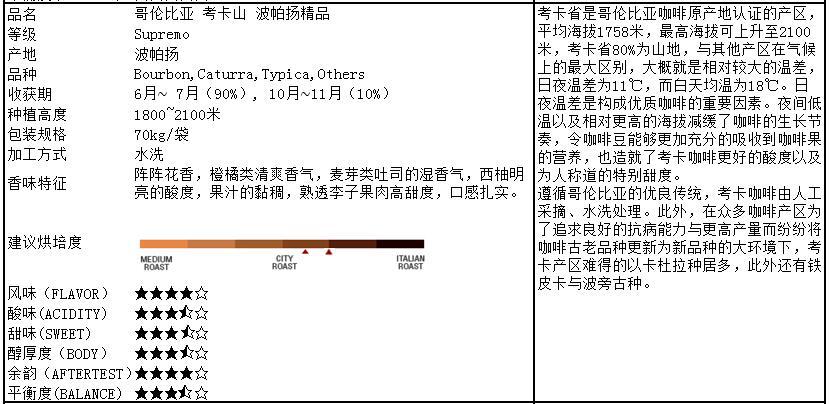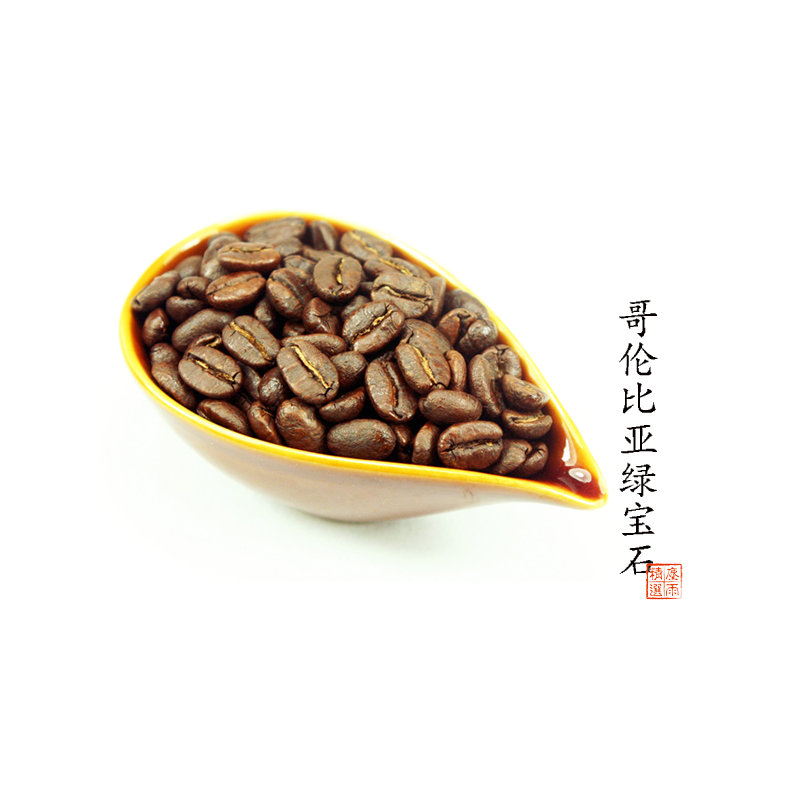Boutique coffee beans: introduction to boutique coffee beans at Popayan Manor in Coca Hill, Colombia.

Cauca province is a certified coffee producing area in Colombia, with an average elevation of 1758m and a maximum elevation of 2100m. The topography, precipitation, temperature and volcanic soil of the area prepare suitable conditions for the growth of coffee.
Cauca province is 80% mountainous, with parallel mountain systems in the east and middle, part of the Andes, the central mountain system includes two main volcanoes, Sotara and Petacas, and the Huila mountain, which is covered with snow all the year round, benefits from volcanic dust, and the soil in the producing area provides adequate nutrition for coffee growth.
There is the Popayan Plateau (Popayan plateur) between the eastern and western mountains of Cauca, and the patia basin in the south, and the patia River flows from north to south into Narino province. The main producing area of Cauca is located on the north side of Patia. The producing area is surrounded by high mountains, which block the airflow and water vapor from the Pacific Ocean and trade winds from the south, thus maintaining a stable climate. Near the equator, there is plenty of sunshine. The stable climate and sufficient sunshine provide a guarantee for the stability of coffee quality.
Cauca province is similar to other southwest producing areas, the precipitation shows an obvious unimodal distribution (monomodal), and the dry season mainly occurs from August to September every year, followed by a concentrated coffee blossom season followed by the next year's concentrated coffee harvest season.
The biggest difference in climate between Cauca and other producing areas is probably the relatively large temperature difference, with a daily average temperature of 11 ℃ and a daytime average temperature of 18 ℃. The temperature difference between day and night is an important factor in quality coffee. Low night temperatures and relatively higher elevations slow down the growth of coffee, allowing coffee seeds and beans to more fully absorb the nutrients of coffee fruits, as well as better acidity and commendable special sweetness of Coca Coffee.
Source: network
Important Notice :
前街咖啡 FrontStreet Coffee has moved to new addredd:
FrontStreet Coffee Address: 315,Donghua East Road,GuangZhou
Tel:020 38364473
- Prev

Boutique coffee beans: detailed analysis and introduction of emerald coffee beans in Colombia
Description: Colombian emerald coffee bean packaging: professional Kraft paper one-way valve packaging net weight: half pound (227g) production date: freshly roasted coffee country: Columbia Coffee Manor: AF (Agropecuaria Farallones) Manor altitude: 1500-2000m Coffee mesh: 16-17 mesh (refers to raw bean size, the larger the mesh, the larger the particle) processing
- Next

Comprehensive introduction of Grade A coffee beans in the world and the methods of fresh preservation of coffee beans
CONTENT taste introduction 1. Blue Mountain: it is a kind of slightly sour and supple coffee with sweet and delicate flavor. Pure Blue Mountain coffee tastes better, but it tastes very mellow and delicate. It is rated as having aristocratic taste and is the best coffee. two。 Giant Cuban Blue Mountain: known as the Coffee Queen, the fragrance is as comfortable and unique as snow. The taste is smooth and smooth. It is absolutely unforgettable.
Related
- Guji coffee producing area of Guji, Ethiopia: Humbela, Shakiso, Wulaga
- What is the most expensive variety of Qiloso in BOP multi-variety group?
- How to store the coffee beans bought home?
- Why are Yemeni coffee beans so rare now?
- Ethiopian Sidamo all Red Fruit Sun Sun Santa Vini Coffee beans
- SOE is mostly sour? What does it mean? Is it a single bean? what's the difference between it and Italian blending?
- Is Italian coffee beans suitable for making hand-brewed coffee?
- How to choose coffee beans when making cold coffee? What kind of coffee beans are suitable for making cold coffee?
- Just entered the pit to make coffee, what kind of coffee beans should be chosen?
- Can only Japan buy real Blue Mountain Coffee? What are authentic Jamaican Blue Mountain coffee beans?

